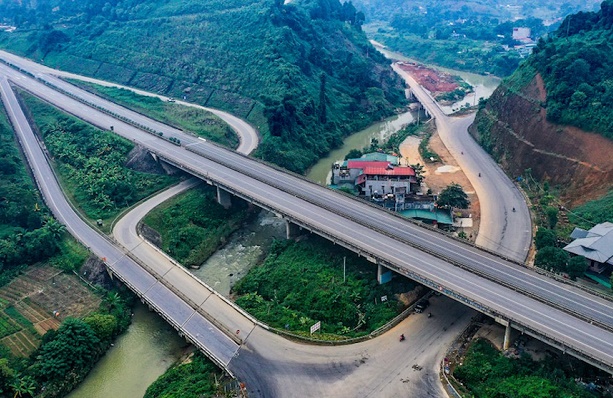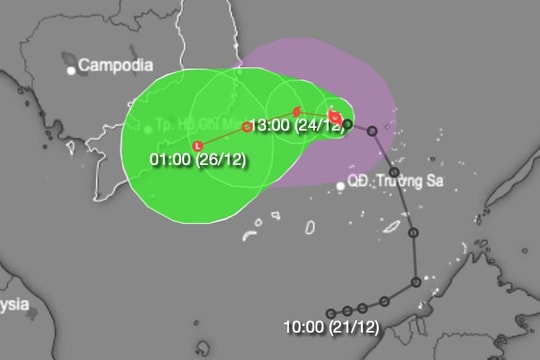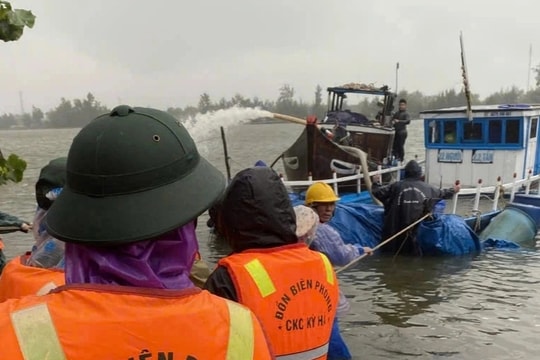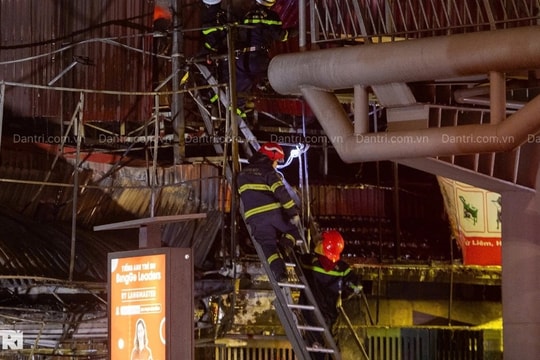MoT to accelerate transportation projects in Central Highlands
The Ministry of Transport has recently announced that it will tighten co-operation with local authorities in Central Highland provinces to accelerate projects that improve local transportation.
 |
| Road in the Central Highlands region. The Ministry of Transport will accelerate projects to develop infrastructure in the region. – Photo from diendandoanhnghiep.vn |
CENTRAL HIGHLANDS – The Ministry of Transport has recently announced that it will tighten co-operation with local authorities in the Tây Nguyên (Central Highland) provinces to accelerate projects that improve local transportation.
Accordingly, the ministry announced that it has a plan to develop the social-economy linked with the security and national defense in the Central Highlands region.
Under the co-operation, the ministry and local provinces will co-ordinate to accelerate land clearance to ensure that all projects will be done in time.
To exploit and leverage the potential and advantages of the region, the ministry will prioritise the development of road and air routes, focusing on removing transportation bottlenecks in the region, ensuring connectivity and forming links between the Central Highlands and the central and Southeast coastal areas.
The ministry will also support localities in researching and investing in expressways; sections of the North-South expressway to the West; expanding airports of Liên Khương, Pleiku, and Buôn Ma Thuột; restoring and upgrading the Tháp Chàm – Đà Lạt railway line; and the railway line connecting the Central Highlands with nearby provinces.
In detail, by 2030, the Ministry of Transport is expected to complete construction and operation of the 180km Quy Nhơn - Pleiku expressway with a preliminary total investment of around VNĐ54 trillion (US$2.1 billion).
By 2027, the plan is expected to be put into operation the 118 Khánh Hoà – Buôn Ma Thuột expressway with a preliminary total investment of nearly VNĐ22 trillion ($871 million).
By 2027, the aim is to open the 129km Gia Nghĩa – Chơn Thành expressway with a preliminary investment of over VNĐ25.5 trillion ($1 billion). By 2028, the plan is to inaugurate the 67km Tân Phú – Bảo Lộc expressway with a total investment of over VNĐ18 trillion ($710 million).
By 2025, the ministry is also studying the addition of the Quảng Ngãi - Kon Tum expressway to the plan.
It is researching and preparing for investment in the North - South west expressway, with the investment process for expressways after 2030 including the Ngọc Hồi - Pleiku expressway, 90 km in length, six lanes, with a preliminary total investment of around VND19 trillion; the Pleiku – Buôn Ma Thuột expressway, 160 km in length, six lanes, with a preliminary total investment of about VNĐ34 trillion ($1.3 million); and the Buôn Ma Thuột- Gia Nghĩa expressway, 105 km in length, six lanes, with a total investment of VNĐ22.1 trillion ($871 million).
The ministry confirmed that it will co-ordinate with the Ministry of Planning and Investment and the Ministry of Finance to prioritise investment resources for developing economic and social infrastructure in the Central Highlands region.
The ministries therefore will guide and co-ordinate investment activities to connect production areas, routes to the centres of communes, villages, and inter-village roads.
The Ministry of Transport will also empower localities to invest in infrastructure managed by the Government within provincial territories, especially in transportation infrastructure projects. This aims to leverage the proactive nature of localities, and mobilise maximum resources for investing in the development of transportation infrastructure.
A specific roadmap for each year will be issued to implement the plan. The solution put forward is to efficiently utilise the transportation infrastructure and organise transportation in a scientific and efficient manner.
Actions will be taken to construct and implement a maintenance plan for the transportation infrastructure to promptly address any deterioration, incidents, or potential dangers posing risks to traffic safety.
The ministry will also apply modern technologies in management, operation, design, construction, organisation, exploitation, and maintenance of transportation infrastructure to accelerate progress, improve quality, and reduce project costs while also protect the environment, and address climate change.
The ministry also informed that it will promote the implementation of transportation infrastructure connectivity projects between Việt Nam and countries in the Mekong Sub-Region, especially within the framework of co-operation in the Mekong Sub-Region, the Cambodia - Laos - Viet Nam Development Triangle, and other ASEAN countries.
The Central Highlands region contains the provinces of Đắk Lắk, Đắk Nông, Gia Lai, Kon Tum and Lâm Đồng. The region borders Laos and Cambodia. – VNS
























